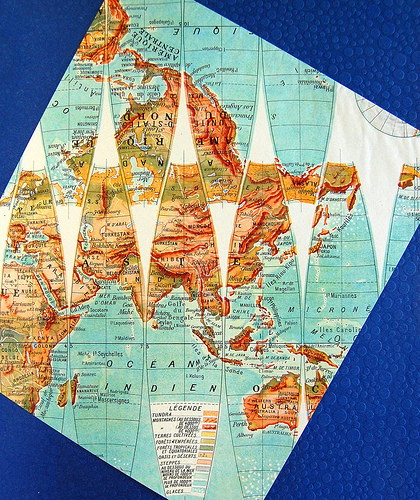How do we reform the international political system? One new radical solution that has emerged as a response to traditional Keynesianism is a multipolar anti-imperialist framework. Keynesians believe that the global governance institutions — the International Monetary Fund (IMF), the World Bank and the World Trade Organization (WTO) — can function as regulatory bodies that exhibit greater accountability, transparency and access to decision-making by developing country governments. Thus, if the global governance institutions operate according to guidelines that are rational, rather than ideological or power-driven, then they can become key, responsible actors on the global stage and we can build a world of peacefully interacting national capitalisms.
Keynesians look back to the statist period stretching from the late 1940s to the early 1970s — in relation to the current push towards deregulation, privatization of the public sphere, and minimization of the state’s role — as a model of success. The period 1948-1973 is seen by many as the economic Golden Age of the 20th century: it was marked by the highest economic growth simultaneous with the lowest unemployment figures of the last hundred years. Prosperity however came to an end in the mid-1970s: the world economy has never replicated the success of that period. Keynesians believe that the global system can renew its former level of prosperity if there is a turn towards substantial international regulation.
In contrast, anti-imperialist activists and thinkers, with among the most brilliant being Walden Bello, in particular in De-Globalization, disagree with the basic presupposition of Keynesianism. They argue that the international development system is fundamentally flawed in its implementation. Bello notes that a genuine alternative must not only transform the ideological substance of institutions but also the formal geometry within which they operate. Rather than propose a new form of centralized globalization, anti-imperialists call for a multipolar global governance. A plural, polycentric international framework is one that would move away from the goal of transforming the IMF, the World Bank and the WTO into progressive organizations. These institutions are perceived by anti-imperialists as inevitable tools of the most powerful countries — not only in their substance but also in their form. The notion of plural governance moves away from any type of reformed centralized governance. Bello notes that IBM, the IMF and the Soviet Union — despite their philosophical differences — all had similar commitments to a centralized system, and that their failures are not simply attributable to their ideological commitments.
Anti-imperialists reject Keynesian reformism without, however, abandoning internationalism. Unlike autonomists, anarchists, localists and postmoderns, anti-imperialists do not advocate a non-statist politics. Instead, they propose that the global governance institutions should be weakened, while other international agencies such as the United Nations Conference on Trade and Development (UNCTAD) the International Labor Organization (ILO) and regional blocs such as South America’s “Mercosur,” Africa’s SADCC ( South African Development Coordination Conference), South Asia’s SAARC (South Asia Association for Regional Cooperation) and Southeast Asia’s ASEAN (Association of Southeast Asian Nations) should be strengthened. Such an approach would not directly eliminate the influence of the powerful but it would allow more room for Southern countries to navigate amongst a variety of interests.
Pluralism would inevitably produce a fluid system of checks and balances on powerful Northern countries. A decentralized global system would open the door for creative, diverse strategies for achieving social justice: Bello points out that the period of 1950-1970 did allow for some growth among poor countries, especially those in Southeast Asia, not only because of statism, but because these countries could negotiate amongst a variety of options, rather than be constrained by the powers of the IMF, World Bank and WTO that have since been expanded and centralized.
The notion of a multipolar order is attractive when facing an intransigent economic empire. How else can one navigate a system that is geared to the interests of one country or one set of countries? When facing an almost invincible enemy, a viable short-term strategy is to encourage the development of numerous other forces that will weaken the influence of the hegemon. The challenge of course is one that the great Chinese philosopher of war, Sun Tse, recognized: in a world where the terrain of battle is continuously shifting, the destruction of one enemy produces the soil out of which the next one emerges. While the ascendance of countries — with vigorous progressive democratic political parties and social movements — like India and Brazil — may propel an attractive polycentric alternative to U.S. hegemony, the rise of China, Iran and Russia will not. We are moving into a multipolar world that will produce as many unintended consequences as intended ones — unintended consequences with the potential to be more nefarious than many progressives suspect.
Thomas Ponniah was a Lecturer on Social Studies and Assistant Director of Studies at Harvard University from 2003-2011. He remains an affiliate of Harvard’s David Rockefeller Center for Latin American Studies and an Associate of the Department of African and African-American Studies.




